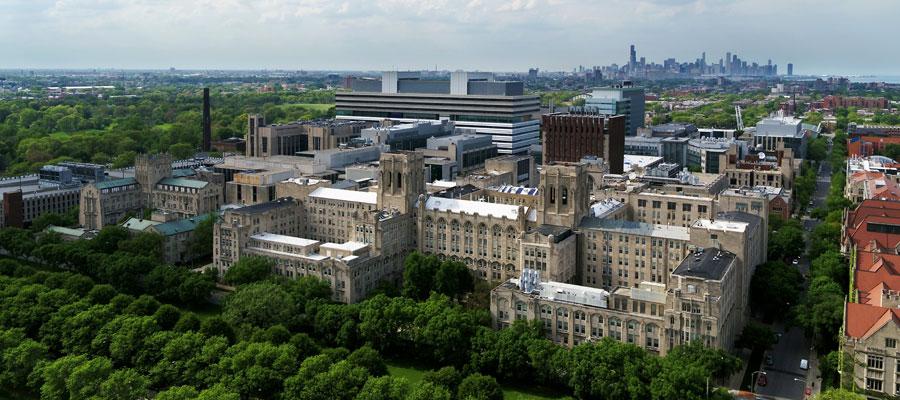The White House Office of Science and Technology Policy (OSTP) has announced that the Pediatric Cancer Data Commons (PCDC) at the University of Chicago is one of five winners of the 2023 OSTP Year of Open Science Recognition Challenge.
According to the White House, the Challenge aimed to recognize science projects that demonstrated dedication to solving current global issues while promoting “open science,” which the OSTP defines as the “principle and practice of making research products and processes available to all, while respecting diverse cultures, maintaining security and privacy, and fostering collaborations, reproducibility and equity.” To be considered eligible, project submissions were required to secure funding from federal grants or utilize federally-supported resources.
Funded by the National Institute of Health (NIH), the PCDC established the largest “international sharing platform” of pediatric cancer data in the world with the goal of alleviating inaccessibility to cancer research findings and improving cancer diagnosis and treatment.
The data initiative began when PCDC principal investigator and pediatric oncologist Samuel Volchenboum and pediatric oncologist Susan Cohn collaborated with data expert Brian Furner to create a neuroblastoma data commons in 2016. Also leading the project was Doug Hawkins, chair of the Children’s Oncology Group and pediatric oncologist at the Seattle Children’s Hospital, alongside E. Anders Kolb, pediatric oncologist and CEO of the Leukemia & Lymphoma Society.
The success of this initial project led the PCDC team to create data commons for other conditions, such as diabetes and epilepsy, and has inspired other researchers to build similar data-sharing platforms. The PCDC has also created GEARBOx, a data portal where physicians can match their patients to potential clinical trials. GEARBOx is currently only available for patients with acute myeloid leukemia but will be developed to include other cancer varieties. The PCDC team hopes that its data platforms can provide personalized support and “follow patients across their lifetime.” Further, the PCDC cancer data collections are free to use and can be accessed through their online data portal.
“We focus on rare diseases and the need to aggregate and harmonize data from all over the world to fuel research and help improve the lives of patients,” Volchenboum commented to the OSTP. “Being designated by the White House Office of Science and Technology Policy as a Champion of Open Science is an incredibly meaningful recognition of our worldwide efforts to lower barriers to research of rare disease.”
According to the OSTP, PCDC’s endeavors have helped advance the goals of the Biden administration’s Cancer Moonshot, a plan to prevent millions of cancer-caused deaths in the United States over the next decades.
“We can expand what’s possible with open, equitable, and collaborative science,” OSTP Assistant Director for Public Access and Research Policy Maryam Zaringhalam commented to the OSTP. “As we highlight these champions of open science, OSTP hopes to inspire others to share their stories about how science and technology can open opportunities for every person.”
Correction, March 24, 2024, 11:15 a.m.: This article previously misattributed Samuel Volchenboum’s and Maryam Zaringhalam’s comments to The Maroon. Volchenboum’s and Zaringhalam’s remarks were addressed to the White House Office for Science and Technology Policy, not The Maroon.









